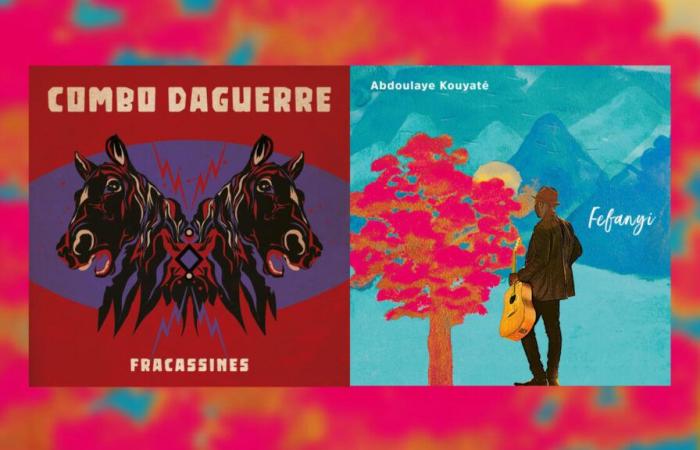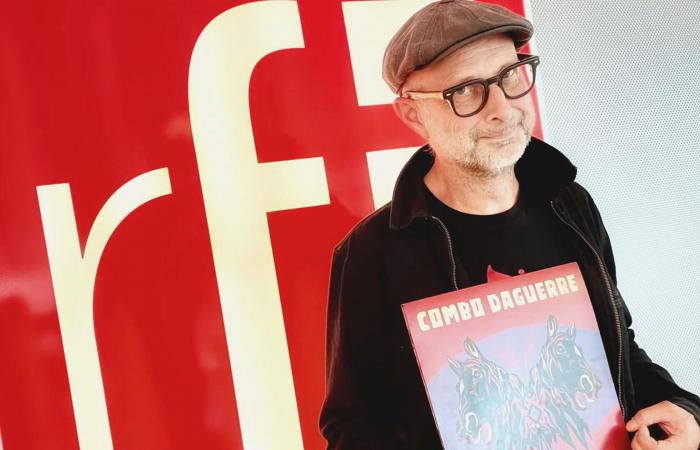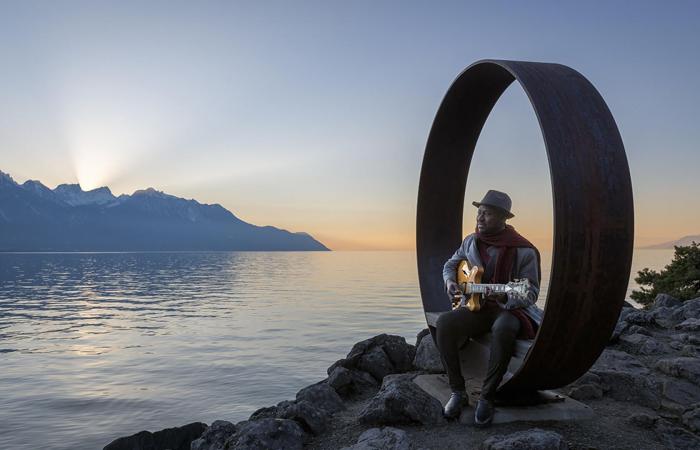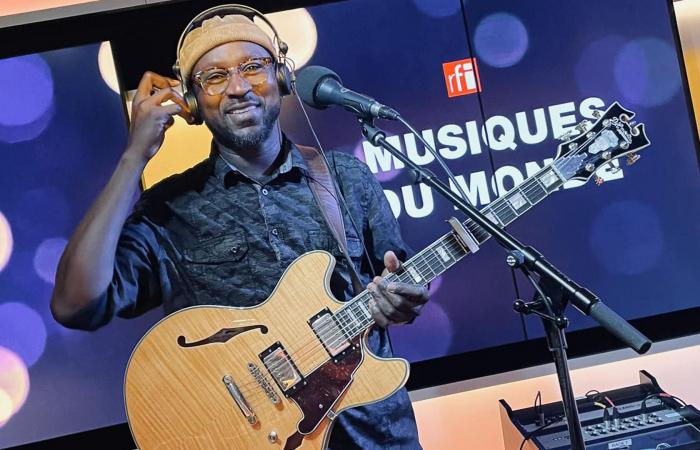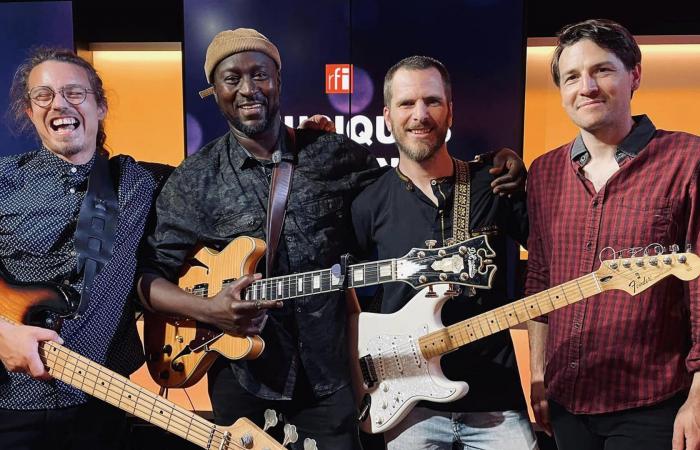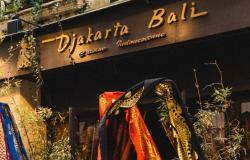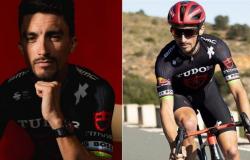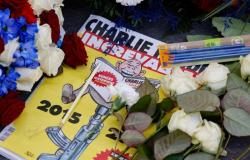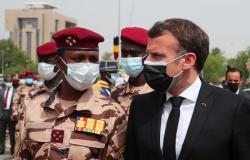Afropop, zouk and traditional yole from Guinea and automatic writing. (Rebroadcast)
Our first guest is Olivier Conan for his new project Combo Daguerre.
Based in New York, Combo Daguerre is the new project of Olivier Conan who, after spending over a decade immersed in the world of psychedelic cumbia with his group Free Chichahas now developed an original repertoire of French-speaking themes played in psychedelic mode. The group is made up of Latin musicians based in Brooklyn, and the multiple influences include bolero, cumbia, 60’s rock as well as obvious Gainsbourgian and surrealist influences. Chicha Libre has become a cult group in South America and Mexico and Combo Daguerre is a bit of a French-speaking heir to a project that could only have been born in New York where cultural and linguistic borders are fluid and pan-Latin influences spill over into all musical worlds: from rock to hip-hop – and now the song. The themes, both joyful and serious, are those of exile, displaced nostalgia and a language adulterated by distance. The drawing which illustrates the cover draws its inspiration from the horse heads of Parisian horse butcheries. A two-headed symbol representing a vanished empire?
After 30 years spent in Brooklyn, a less than holy land where French only exists in creolized forms, my French is lame on both legs. My nostalgia is nourished by a language and memories both reconstituted. I don’t control the grammar, the lexicon, or even the chronology. The images of my Parisian childhood are stained, mixed with images of my ancestors, class photos and postcards from another era. My memories could be someone else’s. I, of course, could be another. The Paris where I believe I grew up is perhaps that of Rivette and Truffaut. In any case, I think I recognize him in Varda’s Daguerreotypes (because I was a child of the 14th century), or even in Les Maléfices by Jacques Yonnet or Les Nuits de Paris by Restif de la Bretonne. The lyrics of Combo Daguerre are placed under the sign of Fracassines – a song written God knows when and God knows how, and which appeared – like a Christian virgin – without warning. Spontaneous generation, automatic writing. The rest of the album is sprinkled with scraps unconsciously gleaned from the French poetry charts because after thirty years of absence, all that remains of this buried culture is polluted water in which the slag floats. of an elementary French culture. Fracassines is automatic work with little conscious intervention. Oliver Conan.
Titles played
Fracassines
Lyrics found on my computer screen with no memory of having written them. That they don’t mean much is almost reassuring.
88 rue Daguerre
Cumbia Instrumental by Peruvian guitarist Felipe Wurst. 88 rue Daguerre is the address of Agnès Varda.
Daguerre Paris
The Little Hunchback
Song from the 16th century. The version that Yvonne George sang in the 1920s was actually an icon of the literary elite of the time. Friend of Cocteau (who wasn’t?) and his coterie. Desnos falls in love with her and dedicates his A la Mysterieuse (I dreamed of you so much..) to her and makes her the heroine of his novel “Le vin est draw”. Yvonne George is not convinced. She prefers women, and opium. She died at 33, like a rock star.
► Album Fracassines (Barbès Rd 2024).
Combo Daguerre website – facebook – Barbès Records bandcamp.
Then we welcome Abdoulaye Kouyaté in the #SessionLive for the release of the album Fefanyi – The Benefactor.
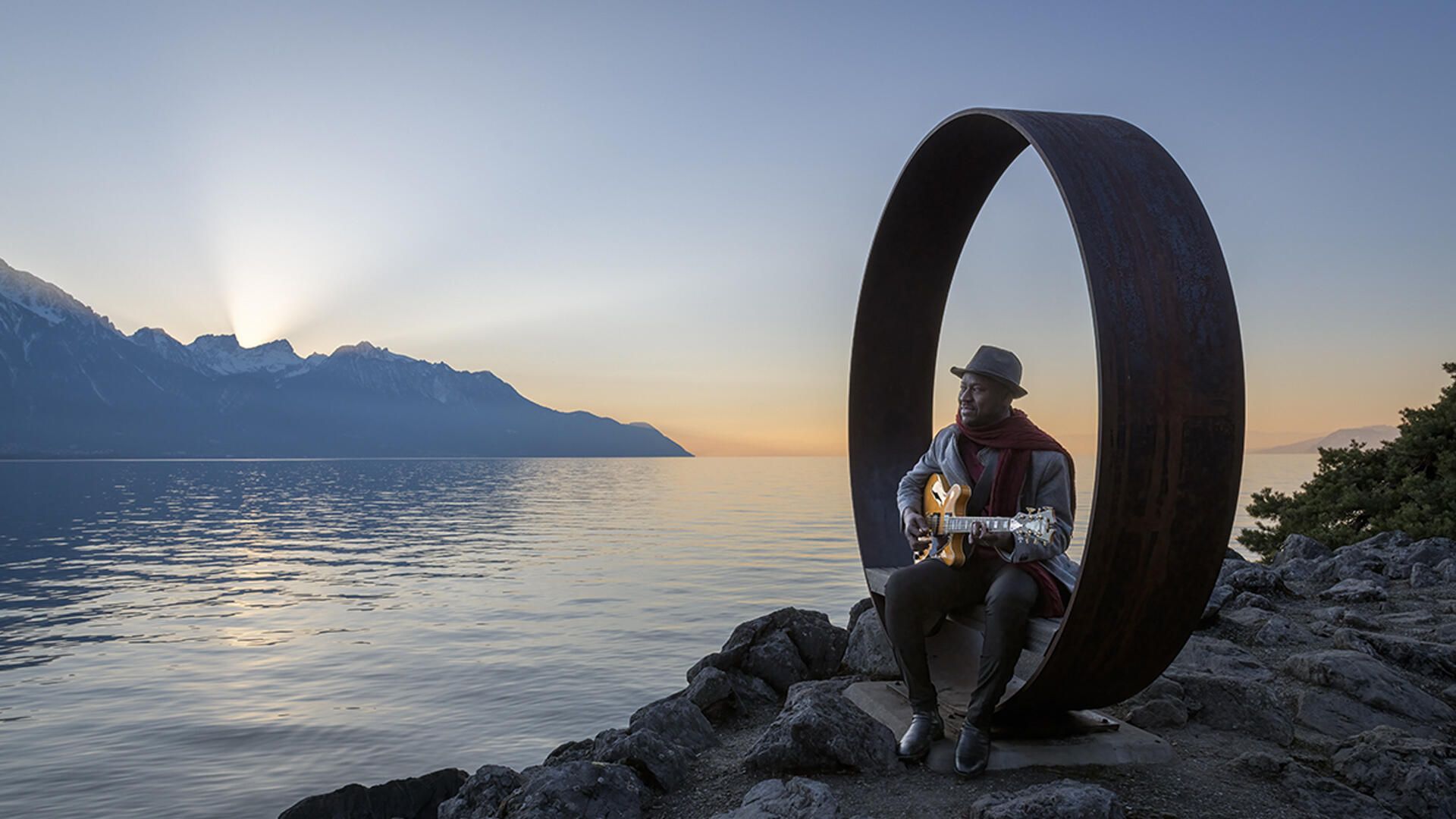
After years spent sublimating the music of the artists he accompanies with his guitar playing and the softness of his Kora (Ba Cissoko, Mariama, Jain and Gabi Hartmann among others), Abdoulaye Kouyaté puts his creative energy into a personal project which brings together his original compositions. In addition to the virtuoso guitarist, we discover that Abdoulaye Kouyaté is a master of melodies and a singer with a muffled tone. Sometimes deep and touching, sometimes rhythmic and danceable, his mixed music oscillates between ballads, kora instrumentals and pieces with Afropop sounds borrowing their rhythm from the offbeat coupe, zouk or traditional yolé from Guinea.
Abdoulaye entrusts the production of the album to Patrick Ruffino and is accompanied by Yannick Vela on bass and Nicolas Grupp on drums. The album is enriched by the valuable contributions of Fulani flute player Dramane Dembele, singer Gabi Hartmann, bassist Guy Nsangué, saxophonist Robbie Marshall, cellist Guillaume Latil, djembefola player Dartagnan Camara and backing vocals from singer Djene Kouyaté .
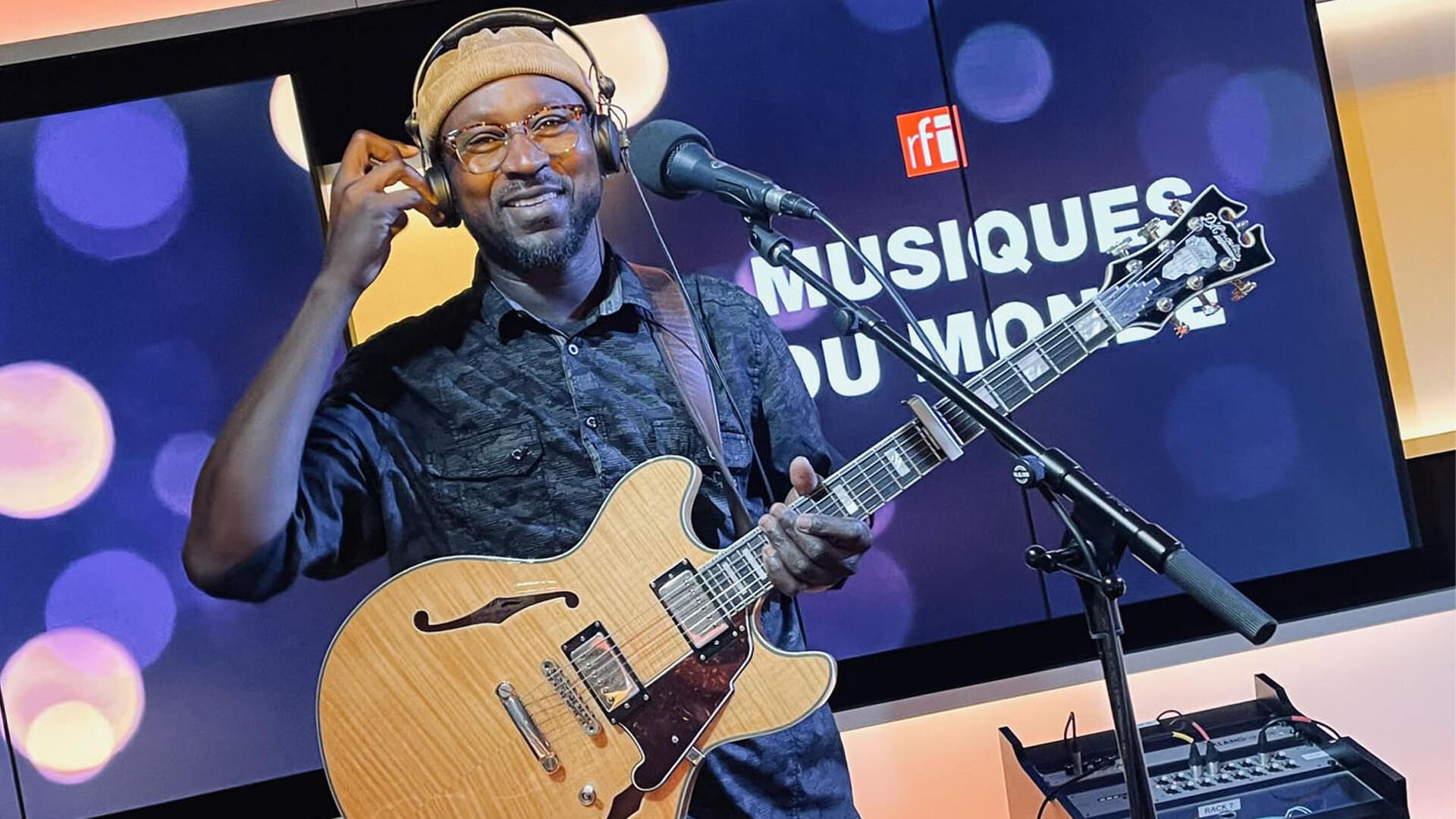
This first disc displays astonishing diversity. Sung in Soussou (the language of the Guinean capital, Conakry) and in French, several titles are inspired by Abdoulaye’s romantic youth in Conakry in the 1990s-2000s. A time when he perfected his skills on the guitar by following the musicians of his neighborhood, hosted crazy expatriate evenings with his group at the Grand Hôtel Camayenne, and fell in love for the first time (Inondi, Doumedira, On fait quoi? and Nitanama in particular). Guinean carefreeness is replaced by the jungle of Europe, adult life, responsibilities, the cold, and difficult learning. These life lessons inspire the songs Douniéma (the grudge holder), Saré (everything at a price) or Inamakana (if you can’t help your neighbor, don’t push him). The song Fefanyi (the benefactor) which gives the title of the album takes up the tradition of the griots, from which the Kouyaté come, of “singing the praises” of great men, generous benefactors.
Following the path opened by his father Sekou Kouyaté, modern griot, respected guitarist and conductor of Miriam Makeba during his years of exile in Guinea, Abdoulaye Kouyaté shapes his guitar playing by listening to jazz, funk, reggae, Son Cubano or West Indian Biguine while giving it Mandingo sounds. He cites Paul Simon and Georges Benson as inspiration. In Guinea, he is given the nickname “jazzman” because of his style which deviates from the traditional Mandingo. When his father falls ill, Abdoulaye replaces him as a kora player in Circus Baobab. With this first West African circus, he traveled the world for a decade, before settling in Marseille and then Paris.
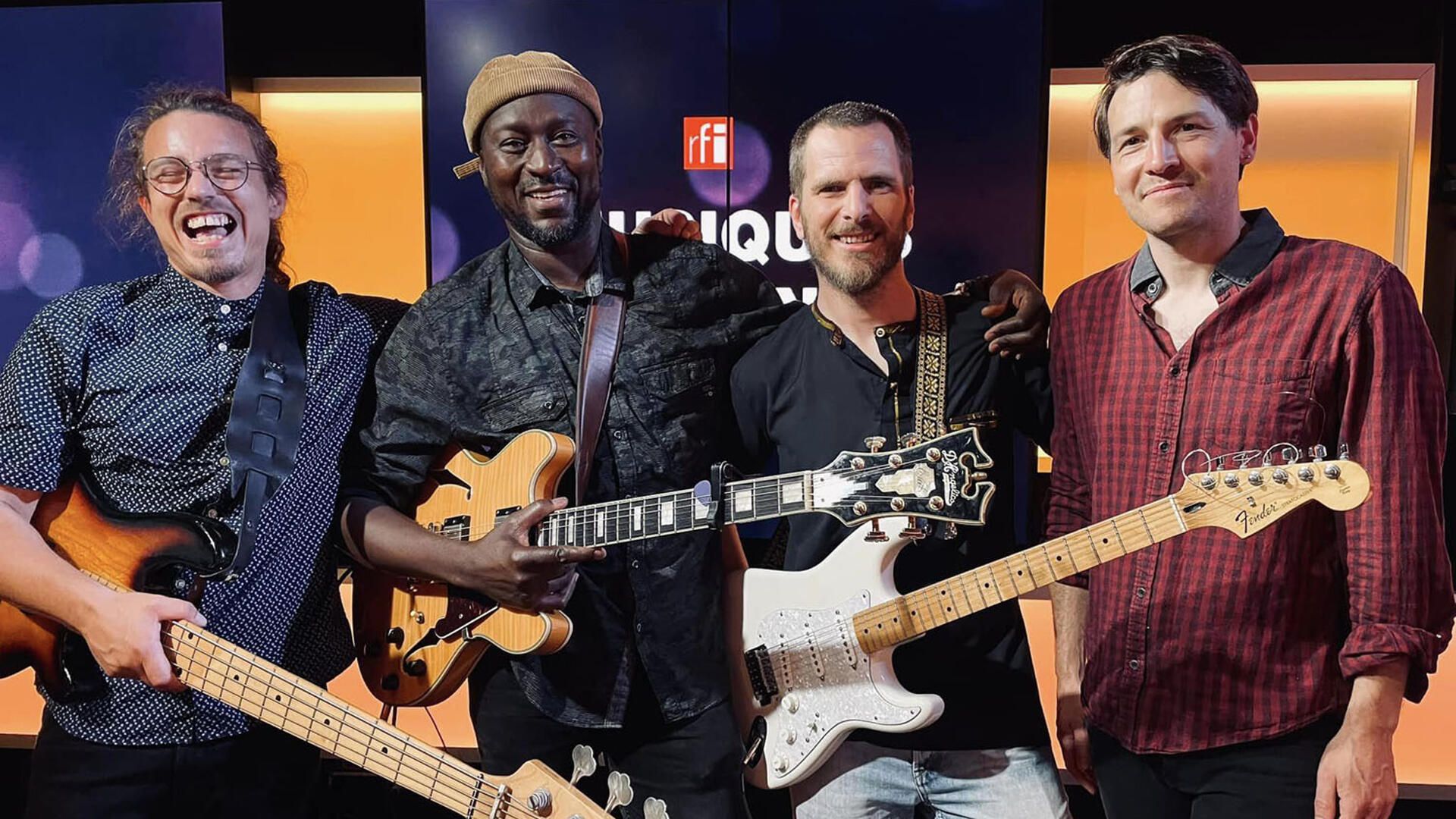
Titles performed at the big studio
– Nowhere Live RFI
– You think we are moving, from the album
– It has many Live RFI
Line Up: Abdoulaye Kouyaté – voice, guitar – Thierry Fournel – guitar – Yannick Vela – basse – Nicholas Group – battery
Sound: Benoît Letirant, Mathias Taylor
► Album Fefanyi – The Benefactor (Reva prod – Rock’n hall 2024)
Site – YouTube – Facebook

